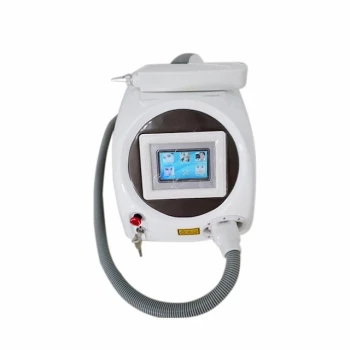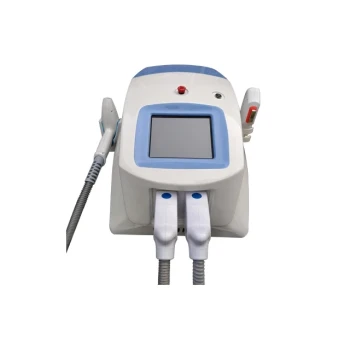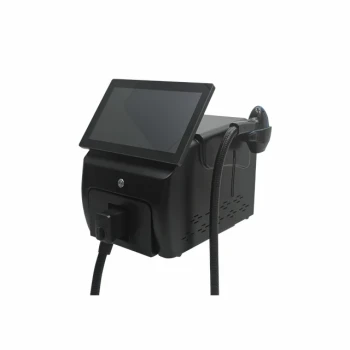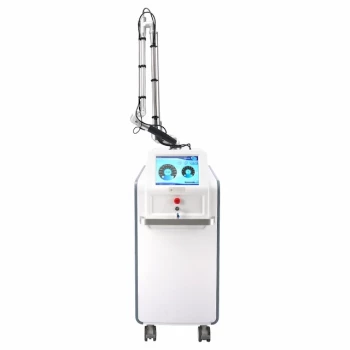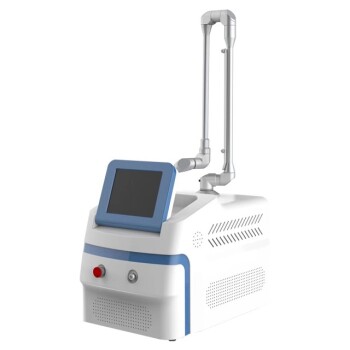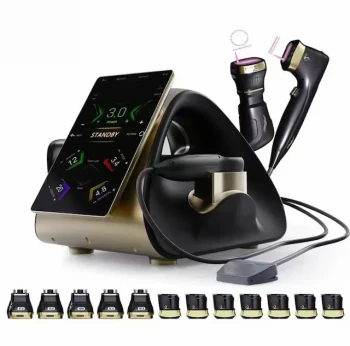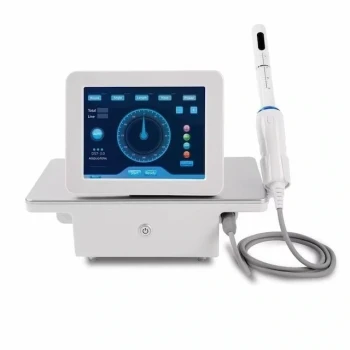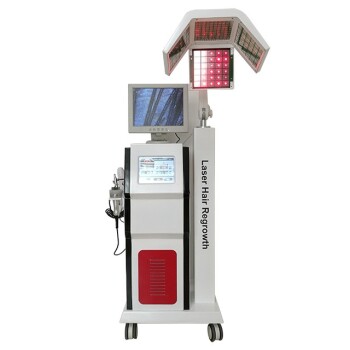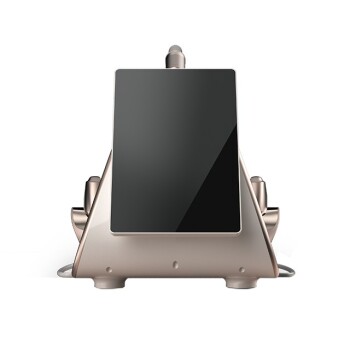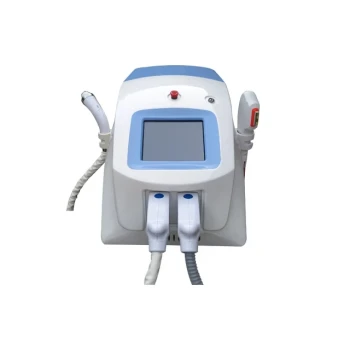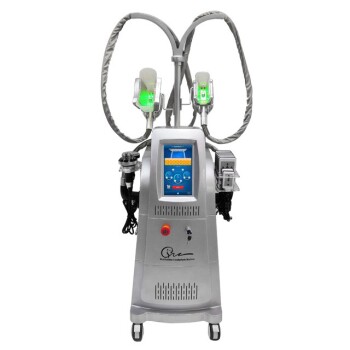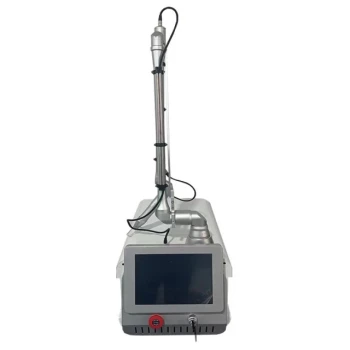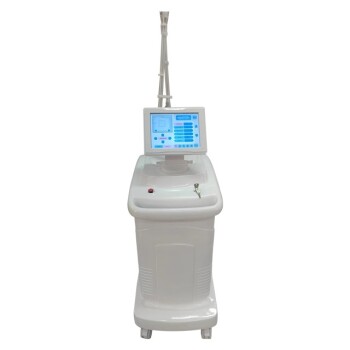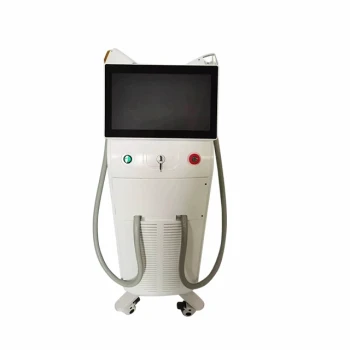At its core, the principle of an Nd:YAG laser is the conversion of external energy into a highly concentrated, coherent beam of infrared light. This is achieved by energizing neodymium ions embedded within a yttrium aluminum garnet crystal, causing them to release their stored energy in a controlled, amplified chain reaction.
The entire process hinges on a fundamental concept: using an external power source to create an unstable, high-energy state in a crystal, and then stimulating that crystal to release its energy as a cascade of perfectly synchronized photons, which are then amplified to form the laser beam.
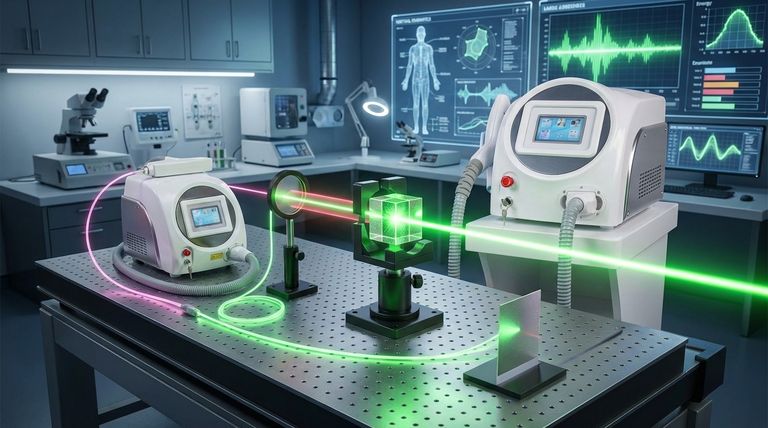
Deconstructing the Nd:YAG Laser
To truly understand the principle, we must look at the distinct role each component and process plays in generating the final beam.
The Heart of the Laser: The Nd:YAG Crystal
The lasing medium itself is a synthetic crystal known as Yttrium Aluminum Garnet (YAG). This crystal acts as a stable, transparent host.
Into this host crystal, a small percentage of Neodymium (Nd) ions are intentionally introduced, a process called doping. These Nd³⁺ ions are the "active" component that actually produces the light.
The Energy Source: The Pumping Mechanism
The Nd ions start in a low-energy "ground state." To make them lase, we must inject energy into the crystal in a process called pumping.
Historically, this was done with a high-intensity flashlamp, similar to a photographic flash. Modern systems often use more efficient and controllable laser diodes, which convert electricity directly into light at a wavelength the Nd ions can easily absorb.
Creating the Potential: Population Inversion
Pumping excites the electrons in the Nd ions, moving them to higher, unstable energy levels. The goal is to achieve population inversion.
This is a critical, unnatural state where more Nd ions are in an excited, high-energy state than in their stable, low-energy ground state. It's like holding a large volume of water behind a dam; a massive amount of potential energy is now stored in the crystal, waiting for a trigger.
The Chain Reaction: Stimulated Emission
Once population inversion is achieved, a single photon (which can occur spontaneously) passing by an excited Nd ion can "stimulate" it to fall back to its lower energy state.
When it does, the ion releases a second photon that is a perfect clone of the first: identical in wavelength (1064 nm for Nd:YAG), direction, and phase. These two photons can then stimulate two more ions, which release four, and so on, creating an exponential chain reaction.
Building the Beam: The Optical Resonator
This cascading photon release is contained and amplified within an optical resonator, which typically consists of two highly parallel mirrors placed at either end of the Nd:YAG crystal.
One mirror is almost 100% reflective, while the other (the "output coupler") is partially reflective (e.g., 95% reflective). The photons bounce back and forth between these mirrors, passing through the crystal hundreds of times, stimulating more and more emission and rapidly building the light's intensity.
A fraction of this intensely amplified, coherent light escapes through the partially reflective mirror, forming the powerful, single-direction laser beam.
Understanding the Trade-offs and Limitations
The Nd:YAG principle is robust, but its implementation involves key trade-offs that influence its performance and application.
Pumping Efficiency and Lifespan
Flashlamp-pumped systems are generally less expensive but are also far less efficient. Much of their energy is wasted as heat, and the lamps have a limited lifespan of a few hundred hours.
Diode-pumped systems are more expensive initially but offer dramatically higher efficiency, better beam quality, and lifespans of tens of thousands of hours, leading to a lower total cost of ownership.
Thermal Effects
The pumping process, especially with flashlamps, generates significant heat within the Nd:YAG crystal. This heat can cause the crystal to expand and distort, an effect called thermal lensing.
Thermal lensing can degrade the quality and stability of the laser beam, requiring active cooling systems and careful design, particularly in high-power applications.
Wavelength and Safety
The primary output of an Nd:YAG laser is infrared light at 1064 nm, which is invisible to the human eye. This presents a significant safety hazard, as a high-power beam can cause severe eye damage before a person is even aware of its presence. For this reason, many systems include a low-power, visible "aiming beam."
How This Principle Translates to Application
Understanding this core principle allows you to see why the Nd:YAG laser is chosen for specific tasks.
- If your primary focus is high-power material processing (cutting, welding): The ability to generate thousands of watts of 1064 nm energy, which is well-absorbed by metals, makes the Nd:YAG principle ideal.
- If your primary focus is medical surgery: The principle allows for the precise delivery of energy that can coagulate, vaporize, or cut tissue with minimal collateral damage.
- If your primary focus is scientific research or tattoo removal: The principle can be adapted using "frequency-doubling" crystals to convert the 1064 nm infrared light into visible green light (532 nm), which interacts differently with materials.
By grasping how energy is stored, stimulated, and amplified within the crystal, you can effectively assess how this technology fits your specific goals.
Summary Table:
| Component / Process | Role in Laser Principle |
|---|---|
| Nd:YAG Crystal | Host medium doped with neodymium ions; the source of light emission. |
| Pumping Mechanism | Provides external energy (e.g., from diodes) to excite ions to a high-energy state. |
| Population Inversion | Creates an unnatural state where more ions are excited than at rest, storing potential energy. |
| Stimulated Emission | Triggered process where photons stimulate excited ions to release identical photons, creating a chain reaction. |
| Optical Resonator | Mirrors that reflect photons back through the crystal, amplifying the light into a coherent beam. |
| Primary Output | Infrared light at 1064 nm, ideal for cutting, welding, and medical procedures like tattoo removal. |
Ready to harness the precision of Nd:YAG laser technology for your clinic or salon?
BELIS specializes in professional medical aesthetic equipment, providing advanced Nd:YAG laser systems designed for efficacy and safety. Whether your focus is on high-precision dermatological treatments, tattoo removal, or skin rejuvenation, our technology delivers reliable, powerful performance to enhance your service offerings and patient outcomes.
Explore how our expertise can elevate your practice — contact our specialists today for a personalized consultation!
Visual Guide
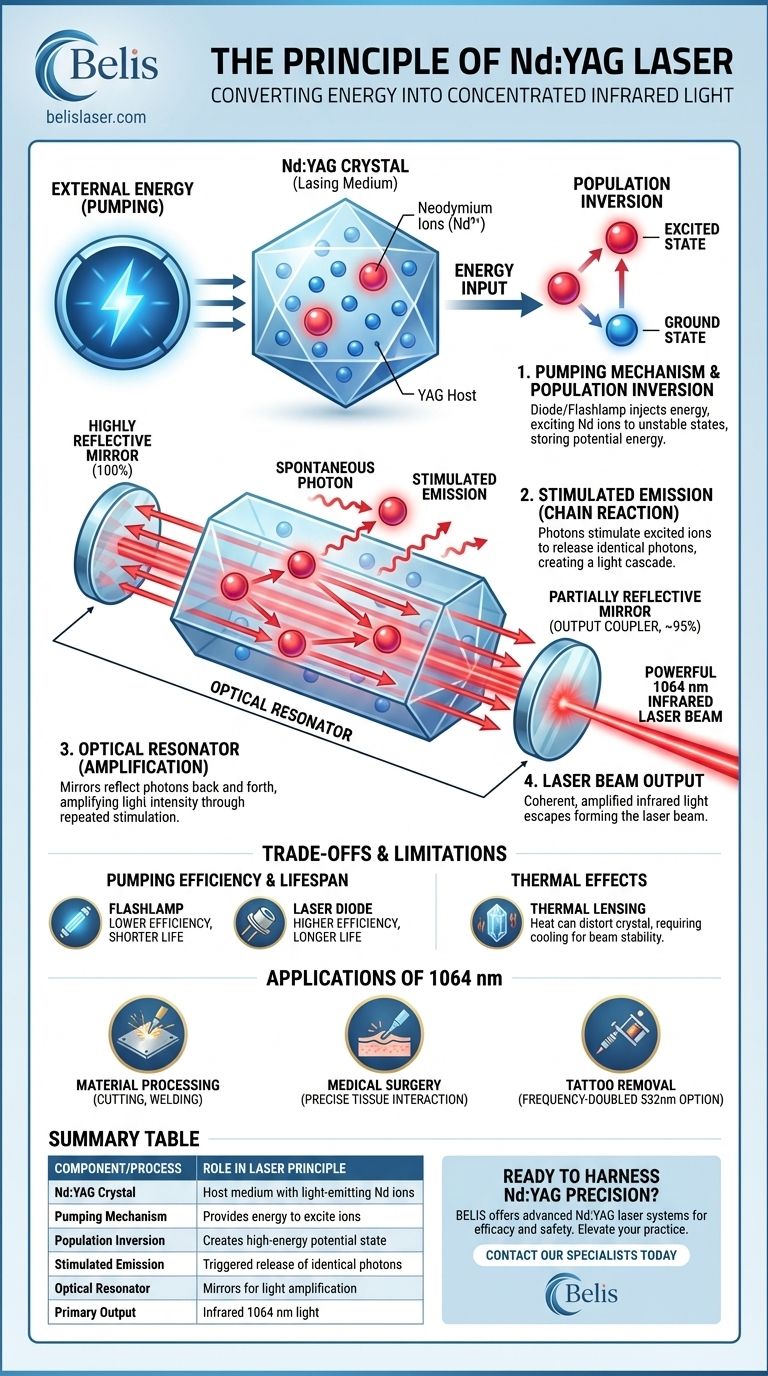
Related Products
- Q Switch Nd Yag Laser Machine Tattoo Removal Nd Yag Machine
- Clinic Use IPL and SHR Hair Removal Machine with Nd Yag Laser Tattoo Removal
- Diode Laser SHR Trilaser Hair Removal Machine for Clinic Use
- 7D 12D 4D HIFU Machine Device
- Trilaser Diode Hair Removal Machine for Beauty Clinic Use
People Also Ask
- How does the 1064nm Nd:YAG laser treat deep hypertrophic scar tissue? Unlock Advanced Dermal Remodeling Solutions
- What is the clinical significance of perifollicular erythema in Nd:YAG hair removal? Your Guide to Treatment Efficacy
- Is Q Switched Nd:YAG laser good? The Gold Standard for Tattoo & Pigment Removal
- What types of pigmented lesions can an Nd:YAG laser treat? Expert Skin Solutions for Clinics
- What are Q-switched lasers commonly used for? Remove Tattoos & Pigment with Precision
